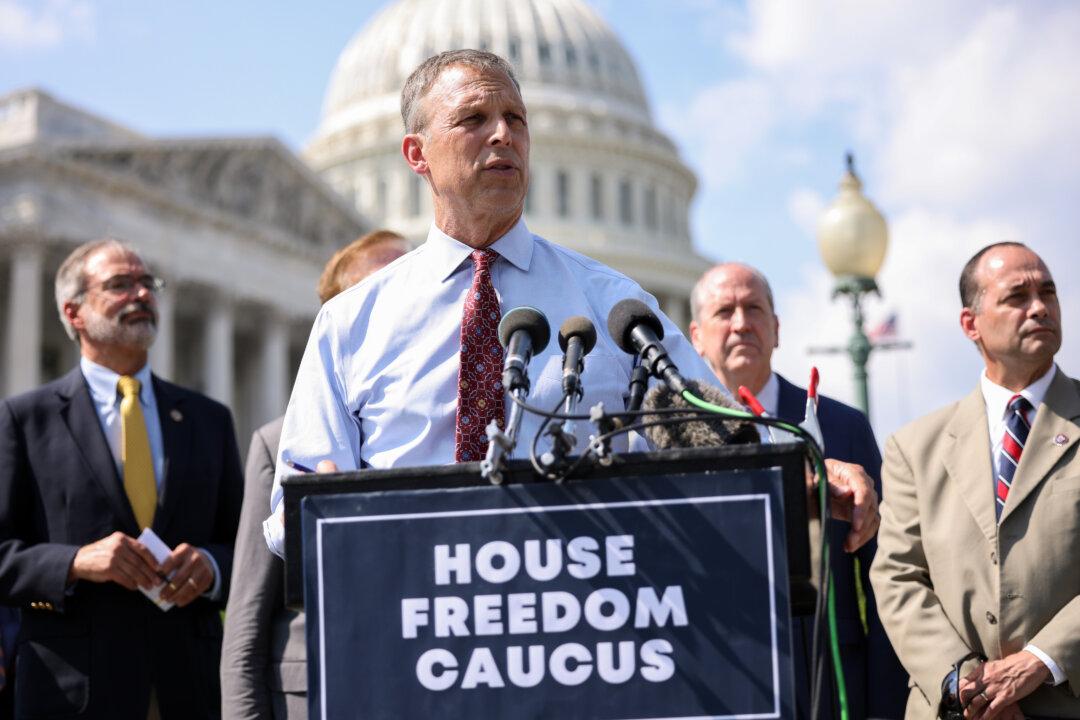Members of the House Freedom Caucus have urged House Speaker Kevin McCarthy (R-Calif.) and Senate Republicans to “use every leverage” to get the House debt limit bill signed into law.
“The U.S. House of Representatives has done its job in passing the Limit, Save, Grow Act to provide a mechanism to raise the debt ceiling. This legislation is the official position of the House Freedom Caucus and, by its passage with 217 votes, the entire House Republican Conference,” the group of 46 conservative Republicans said in a May 18 statement.





